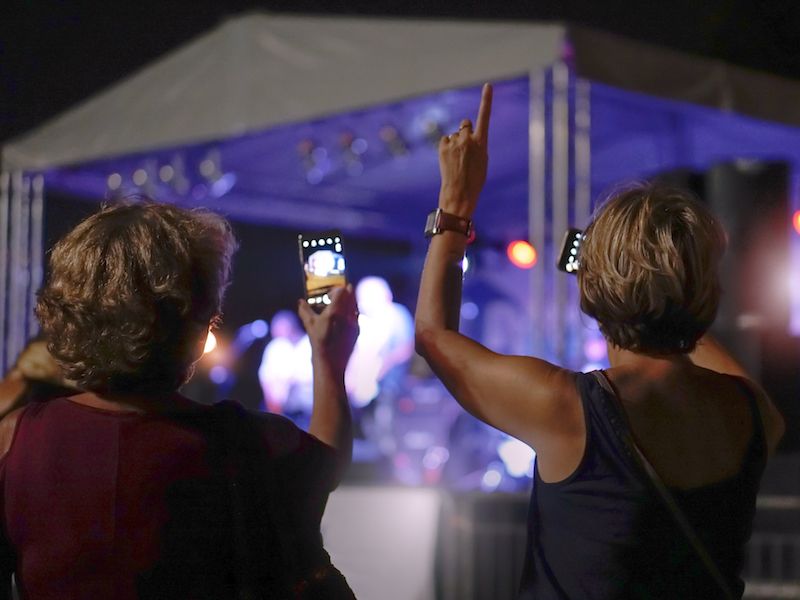
Summer is finally here, and it’s time for all those things we’ve been getting excited about: going to the beach, chilling out by the pool, and injured hearing? That’s correct, summer has a lot of unseen risks to your hearing, either from loud sounds or the external scenarios you might find yourself in. Any noises above 80 decibels can lead to harm to your hearing, while lasting loss of hearing can happen in swimming pools or other bodies of water. To keep your hearing safe and sound this summer, you have to be mindful of your environment and take precautions. Read on to identify the summer’s six hidden threats to your hearing.
Use Hearing Protection at Concerts
Whether you’re at an indoor stadium or an outside show venue you still need to wear hearing protection during concerts. 90 decibels is inside the danger zone for ear injury and concerts reach this level even at outdoor shows. That’s why it’s definitely a smart idea to wear earplugs whether you’re going to a show outdoors or indoors. Earplugs dampen the sound while still letting you to hear and get into the music. If you’re going to a performance with young kids, think about buying them a heavy duty pair of earmuffs because children have more sensitive ears than adults.
Fireworks Are More Than Just Loud
Honestly, there are a lot of reasons to avoid fireworks in the summer. It’s not just the 4th of July shows that are professional that can injure your ears, we mean the backyard fireworks that cause hundreds of incidents throughout the summer season. Home fireworks reach volume levels of nearly 155 which can damage your ears as well as causing hand injuries, loss of sight and backyard fires. This year, on the 4th of July, enjoy the fireworks from a distance and leave the fireworks to the pro’s.
Loss of Hearing Can be Brought About by Lawnmowers
If you’re serious about your lawn, most likely you’re out there at least once a week on your lawnmower, using your edger, and trimming your bushes. But this muffled sensation in your ears is a signal that your ears have taken damage. That’s because the constant noise from your lawn tools impact your hearing over time. If you’ve ever noticed lawn care pro’s, you probably have noticed them using ear protection, next time you do yard work with loud power equipment, you need to take a hint from them and use earplugs or earmuffs.
Beaches And Pools, What You Should do to Safeguard Your Hearing
Millions of people suffer from swimmer’s ear every summer, which happens when bacteria-packed water becomes stuck in your ear canal. The bacteria then infects the ear, causing painful earaches and swelling. These bacteria are commonly found in rivers and lakes but could also be found in hot tubs and pools if the water is not properly managed. But if you have your ears treated by a hearing professional you will probably be ok, and no irreversible hearing loss will occur. To be safe, when swimming in your pool, wear specialized swimmers earplugs and keep the chemical balance correct to minimize the likelihood of getting swimmers ear.
Boats and Other Water Sports
Summertime is a breath of freedom for those individuals who love to be out on the water, smelling the fresh lake breeze or the salty air of the ocean. But, jet ski and boat engines are often loud,they can get up to over 100 decibels. Permanent hearing injury can be the result after around 15 minutes of exposure to that much noise. Again, it’s really in your best interests to wear a pair of disposable, foam earplugs while you’re out on the water to make certain you don’t accidentally injure your hearing.
Your Ears Can be Harmed by Car Races
It doesn’t make a difference what kind of auto racing you like, motorcycle, midget, Formula 1, drag racing or stock cars. Every one of them can present a huge challenge for your hearing if you attend many races this summer. It’s estimated that sound levels can go over 120 decibels at certain races, which is absolutely inside the danger zone for hearing injury. As mentioned earlier, your children should use muffs while you should use earplugs at the very least. Because you might not be able to appreciate the sounds of any races in the future if you don’t.
